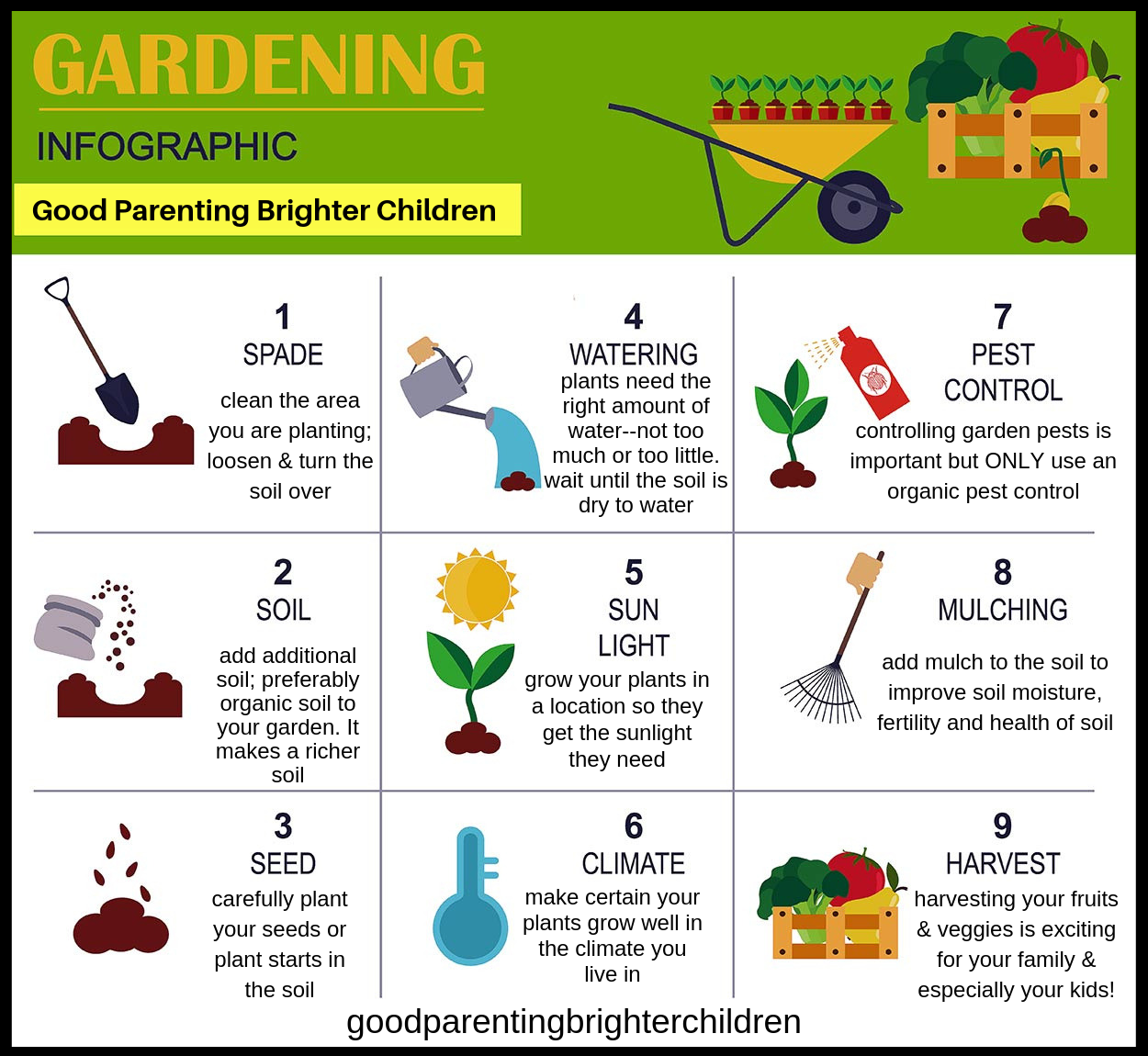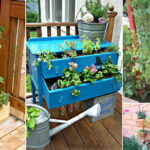Gardening is an endeavor that transcends the mere act of cultivating plants; it is a pathway to instilling values of responsibility, patience, and ecological mindfulness in children. Understanding the right age at which children can begin to engage in this enriching activity opens up a discussion worth exploring. This exploration raises a multitude of questions: what developmental milestones facilitate a child’s ability to participate in gardening? What benefits does gardening confer at various stages of childhood? Furthermore, how does this activity evolve to become a vessel for broader educational and environmental engagement?
The age at which children can begin to garden varies significantly and depends on numerous factors including their physical capabilities, cognitive development, and emotional readiness. Ultimately, there exists no one-size-fits-all approach, but rather a continuum that underscores the adaptability of gardening as a learning tool.
Understanding Child Development: A Foundation for Gardening
Gardening involves not just physical activity, but a complex interplay of cognitive skills, emotional resilience, and social interaction. From the tender age of two, children possess a natural curiosity about the world around them. This age is optimal for initial exposure to gardening, albeit in a limited capacity. Simple activities such as holding a small trowel or pouring water can be the gateways to fostering a sense of wonder and engagement with nature.
At this stage, the emphasis should be on exploration rather than achievement. Toddlers can engage in “sensory” gardens where they can feel different textures, smell various herbs, and observe insects. These activities cater to their burgeoning sensory skills and lay the groundwork for a more structured understanding of gardening principles as they mature.
As children approach the preschool years, typically around ages three to five, they demonstrate increased motor skills and cognitive capacity for structured tasks. It is at this juncture that children can begin to learn more about the life cycles of plants through hands-on activities such as sowing seeds or identifying basic plants. This grounding in empirical observation fosters critical thinking skills and nurtures an early appreciation for the cycle of life—an essential element in cultivating ecological responsibility.
Moreover, this period is characterized by social interactions, and communal gardening can be a splendid vehicle for teaching collaboration. Children can engage with peers or family members, learning about sharing responsibilities and the value of teamwork. These collective experiences are critical for developing a sense of community and empathy towards living organisms, setting the stage for a more holistic understanding of ecology.
Gardening as a Learning Tool: Educational Dimensions
By the time children reach the ages of six to twelve, their cognitive, emotional, and social skills are sufficiently developed, allowing them to engage with gardening on a more intricate level. This transitional phase reveals numerous educational dimensions that gardening can encapsulate. Scientific inquiry, mathematics, and even art can emerge as salient themes through garden-related activities.
From a scientific perspective, children can delve into botany by observing the effects of sunlight on plant growth or experimenting with soil types. Questions surrounding plant anatomy and the role of pollinators can pique curiosity and provide fertile ground for inquiry-based learning. Gardening thus acts as a dynamic laboratory, where children can hypothesize, observe, and deduce—an invaluable skill set in the 21st-century landscape of learning.
Math also finds its place in the garden. Measuring distances between plants, calculating the area of the garden space, and budgeting for necessary supplies fosters mathematical literacy in tangible circumstances. All these activities illuminate abstract concepts in a concrete manner, rendering learning both engaging and practical. Emotional intelligence can further be nurtured; children can track the growth of their plants, articulate feelings surrounding failure when a plant doesn’t thrive, and celebrate successes—constructing a resilient emotional framework.
Establishing a Sense of Responsibility: The Teenage Years
It is during the teenage years that the gardening endeavor can transition into an expression of independence and responsibility. Teenagers, typically between the ages of thirteen and eighteen, possess the physical dexterity and cognitive maturity necessary to engage in more complex gardening activities. At this stage, gardening can evolve into a form of self-expression, potentially through the creation of unique landscape designs or the cultivation of exotic plants.
The teen years also correlate with an increasing desire for autonomy. Empowering teenagers to take full ownership of a garden encourages a sense of accountability and fosters a commitment to nurturing living organisms. Engaging teenagers in community gardening projects can further catalyze social change and civic responsibility, skills that are of paramount importance in today’s environment-focused society.
Moreover, this period might coincide with an increased interest in sustainability and food justice. Engaging in organic gardening practices, understanding the implications of pesticides, or even the nuances of food systems can inject a sense of purpose into their gardening activities. Additionally, these experiences weave the threads of awareness regarding environmental stewardship and ethics into their broader life narratives.
Conclusion: Nurturing Future Environmental Stewards
Ultimately, the question “What’s the right age for kids to start gardening?” unfolds into a much larger dialogue about nurturing future generations of environmentally conscious citizens. If initiated at the appropriate stage, gardening can be a powerful vehicle for instilling core values, from responsibility to sustainability. Even more crucially, these values can be interlaced with a rich understanding of ecological principles, thereby cultivating not just plant nurturers but also advocates for the earth.
The journey through age-appropriate gardening reveals opportunities for meaningful engagement with nature, nurturing curiosity while broadening the educational landscape. By establishing positive gardening experiences early on, children not only blossom in their developmental stages but also emerge as conscientious stewards of the environment, equipped to tackle the immense challenges that lie ahead.









Leave a Comment